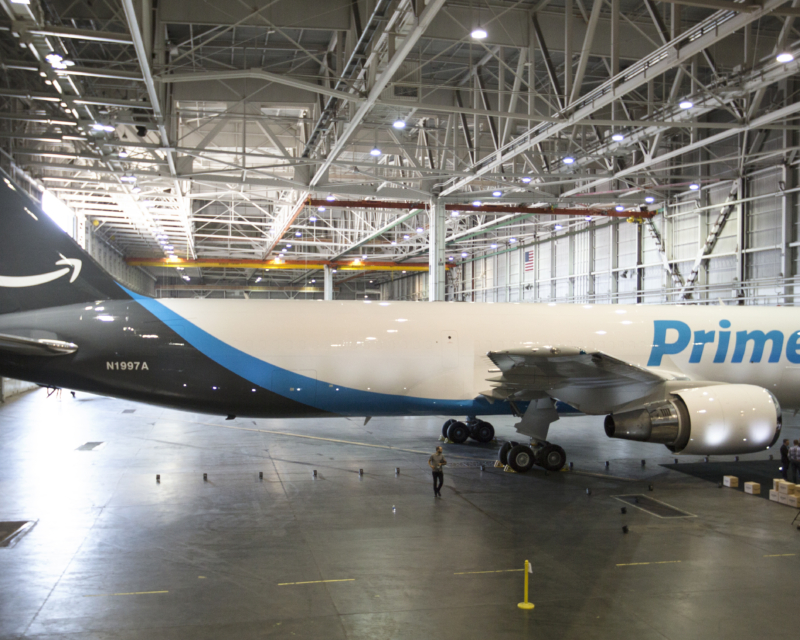Amazon’s Labor Turmoil Threatens Turbulence for Holiday Deliveries
As the holiday season approaches, Amazon’s usually seamless delivery operation faces potential disruption. Pilots for Air Transport International (ATI), a cargo airline crucial to Amazon’s logistics network, voted last month to authorize a strike. This labor dispute could throw a wrench into Amazon’s meticulously orchestrated delivery system.
ATI, a cargo airline owned by Air Transport Services Group (ATSG), operates half of the 80 U.S. aircraft currently in service for Amazon. The pilots, represented by the Air Line Pilots Association union, have cited concerns over falling wages, attrition, and what they perceive as the company’s preferential treatment toward other carriers.
The pilots’ grievances have been festering for three and a half years during negotiations with ATI. While wages in the aviation industry have seen a significant uptick, ATI’s pilots claim their pay has fallen behind, leading to a record attrition rate as pilots seek better-paying opportunities elsewhere.
A potential strike by ATI pilots poses a significant threat to Amazon’s logistics network, potentially causing disruptions during the crucial holiday season. The union represents 98 percent of ATI’s 640 pilots, indicating widespread support for the strike authorization.
Federal law mandates that airline labor disputes undergo mediation by the National Mediation Board. If an impasse is declared and arbitration is refused, a 30-day cooling-off period is implemented before a strike can occur. This means any potential strike action wouldn’t happen until next year.
ATI’s importance to Amazon is underscored by the fact that Amazon Air, the company’s air service, relies heavily on a small network of cargo airlines. ATI alone operates almost half of Amazon’s U.S. aircraft and is deeply intertwined with the e-commerce giant, with 94 percent of its flying hours dedicated to Amazon deliveries.
While Amazon has weathered labor disputes in the past, particularly at the warehouse level, a strike by pilots could prove more challenging to navigate. Airports are fewer and farther apart than warehouses, limiting Amazon’s ability to swiftly redirect products and packages. Shifting volume to other air carriers may be an option, but only if they have the capacity to absorb the influx.
ATI’s pilots, cognizant of the potential impact on customers, have taken a less confrontational stance, hoping to bring Amazon to the negotiating table. The situation raises questions about Amazon’s labor practices and its stance toward unions, as the company has historically been averse to engaging with unions and has actively discouraged unionization among its employees.
As Amazon faces the specter of a labor strike that could disrupt its vital delivery operations, the holiday season may bring more than just festive cheer – it may also deliver a wake-up call about the challenges lurking within Amazon’s vast logistical empire.






